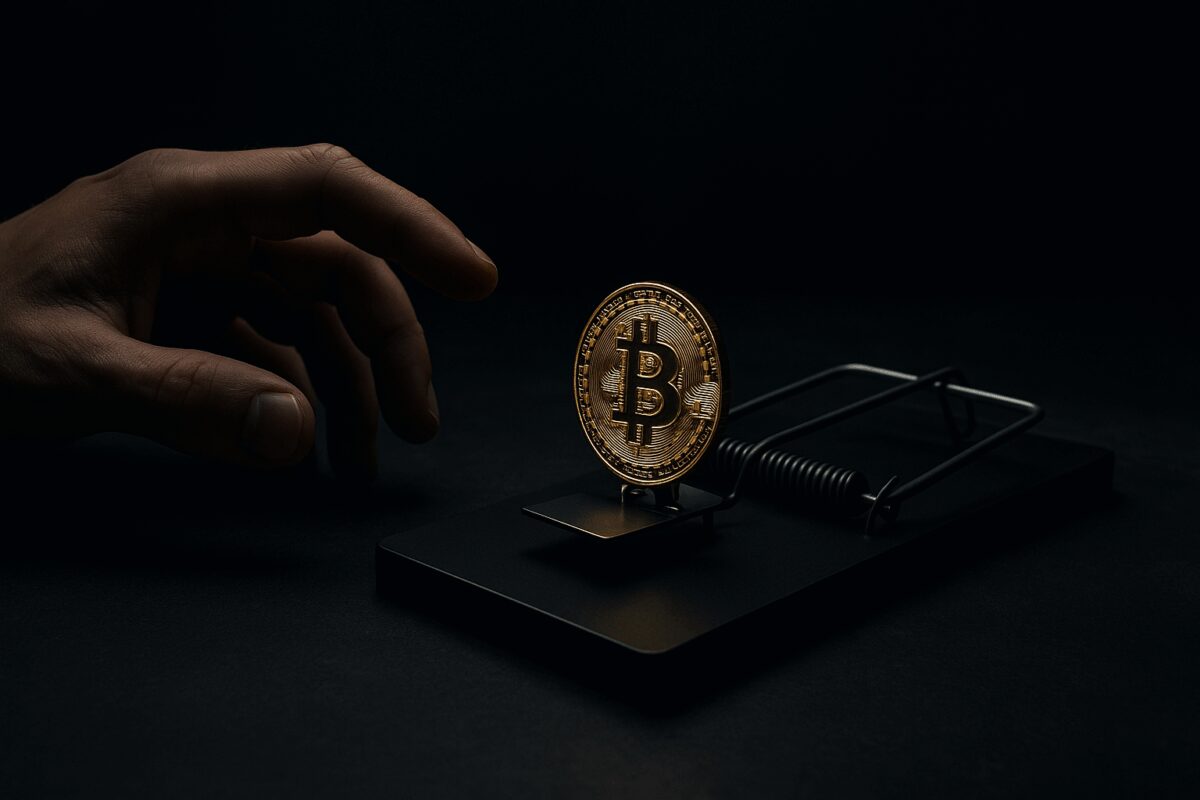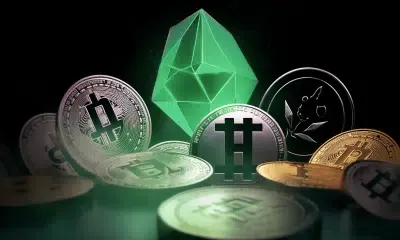
Getting your hands on Bitcoin without spending a dime sounds incredibly tempting, doesn’t it? But how to get free Bitcoin, and is it really free? That shiny promise pulls a whole lot of people into the world of digital money. But this idea of “free Bitcoin” has more to it than meets the eye; often, what you don’t pay in cash, you pay for with your time, your personal data, your effort, or by stepping into some pretty risky situations. As we look at things in May 2025, ways to pick up Bitcoin without directly paying for it are still around, but it’s absolutely crucial to grasp what you’re truly trading away.
What “Free” Really Means When Bitcoin’s Involved
At its core, “free Bitcoin” suggests you’re getting Bitcoin, or those tiny fractions called satoshis, without any money changing hands. That’s the big hook. Look closer, though, and you’ll find there’s nearly always another kind of payment. These aren’t cash costs, but they might include:
- Your Time: Lots of these methods give you so little Bitcoin that you’d have to spend ages to get anything noticeable.
- Your Privacy: You might have to give up personal details or agree to let companies track what you do online, essentially swapping your privacy for a tiny bit of crypto.
- Your Effort: Think about filling out surveys, watching ads, playing through games, or clicking on captchas – these things all demand your active work.
- Real Dangers: This chase can also lead you right into scams, expose your computer to harmful software, and then there’s Bitcoin’s own wild price swings to worry about.
So, when we talk about “free Bitcoin,” it’s probably better to think of it as getting Bitcoin without an initial cash payment, but very often it means you’re spending other things you value and taking on different levels of risk.
Ways People Try to Get “Free” Bitcoin in 2025
Several routes still promise “free” Bitcoin, but each one works in its own way and comes with its own set of real-world costs.
1. Bitcoin Faucets: Just a Drip
These are websites or apps that hand out tiny, tiny bits of Bitcoin (satoshis) if you do easy tasks like solving captchas, clicking on ads, or playing very simple games. They’re often sold as a good starting place for anyone new to crypto. How do they make money? Mostly from the ads they show you. You don’t pay cash, sure, but the time you’ll spend is huge for incredibly small rewards – often just a few cents worth of Bitcoin for an hour of your time. Plus, some make it really hard to actually withdraw your earnings by setting high limits, and a few of these faucet sites are nothing but scams or might try to infect your device.
2. Learn and Earn Programs: Crypto for Your Brainpower
You’ll find these offered by big crypto exchanges (think Coinbase or Binance) and online learning sites. They give you small bits of cryptocurrency, sometimes Bitcoin, when you finish lessons, watch videos, and ace quizzes about different digital coins. There’s no money cost here, but you are putting in a fair bit of time to learn. To sign up, you’ll usually need to go through a KYC (Know Your Customer) check, which means giving up some personal data. The crypto rewards are generally small, but it’s a legitimate way to get a little crypto and some knowledge at the same time. The risk is usually low if you stick to well-known platforms, but remember, the value of any crypto you earn can go up or down.
3. Airdrops: Free Crypto, But Watch Out
This is when new crypto projects give away their tokens for free. Sometimes it’s Bitcoin, but more often it’s a brand-new altcoin. They might give them to people who already own a specific cryptocurrency or to folks who help promote them, like by talking about them on social media. While you don’t pay money, the time you need to put in can vary. You’ll have to share your wallet address and sometimes your social media info, so there’s a data cost. The risk here is pretty high; there are tons of fake airdrops out there that are just trying to steal your information or push worthless tokens. Even if an airdropped token is real, its price can be extremely unstable.
4. Sign-up and Referral Bonuses: Sweeteners for New Users
Many crypto exchanges and related services offer a little Bitcoin as a thank you for opening an account or for bringing in new users who actually use the platform. The bonus itself doesn’t cost you money, but you might need to deposit some funds or trade a certain amount before you can actually get it. Signing up is quick, but referring others can take more effort. You’ll need to provide your info for KYC when you register, so that’s a data cost. With big, established exchanges, the risk is pretty low, but always read the fine print carefully.
5. Crypto Cashback and Rewards: Earn as You Spend
Some credit cards or shopping reward programs (like Lolli or Fold) give you cashback in Bitcoin, or they let you turn your loyalty points into Bitcoin. This isn’t a direct way to get free Bitcoin; you have to spend money to earn it. If you’re already shopping, the extra time and effort are tiny. You are sharing your shopping habits, so there’s a data cost there. If you spend responsibly, the risks are small, though the value of the Bitcoin you get can change.
6. Play-to-Earn (P2E) Crypto Gaming: Gaming for Gain?
There are online games, many built on blockchain technology, that give players small bits of cryptocurrency for things they achieve in the game or just for playing. This crypto can sometimes be Bitcoin or can be swapped for it. Often, it costs little or nothing to start playing, though some games might need you to buy an NFT first. You could end up spending a lot of time playing. For most casual players, the earnings are tiny; to make anything significant, you usually need to be very skilled or play for a very long time. The risk lies in whether the game itself will last and if its token will hold any value.
7. Bug Bounties: Bitcoin for Your Tech Skills
If you’re good with technology, you can earn Bitcoin by finding security holes in crypto projects or platforms and telling them about it responsibly. There’s no direct money cost, but you need very specific skills and it takes a lot of work. The rewards for finding really serious bugs can be huge, but this isn’t something the average person can do.
8. Bitcoin Mining: Not What It Used to Be
Way back in the early days, people could actually mine Bitcoin using regular home computers. Fast forward to 2025, and Bitcoin mining is a whole different beast, completely taken over by expensive, specialized ASIC machines that guzzle enormous amounts of electricity. Any offer you see for “free Bitcoin mining” that doesn’t involve a big investment from you is almost certainly a scam. Real cloud mining services do exist, but you have to pay for them, and you need to be super careful who you choose because there’s a lot of fraud in that area.
The Real “Cost” of “Free”: Dodging Dangers and Debunking Myths
Chasing “free Bitcoin” is a path filled with possible traps and a lot of things people get wrong:
- “It’s totally free cash!” That’s the biggest misunderstanding. As we’ve seen, you’re almost always paying in ways that aren’t cash. That old saying, “if you’re not paying for the product, you are the product,” really fits here a lot of the time.
- “It’s a shortcut to getting rich.” Most legitimate ways to get “free” Bitcoin give you next to nothing. Trying to build up a lot of Bitcoin this way just isn’t realistic. If someone promises you big, easy money, that’s a giant red flag for a scam.
- “Every offer out there is legit.” The crypto world is a magnet for scams. Many “free Bitcoin” deals are just tricks to get your login details, stick malware on your computer, or get you to promote sketchy tokens.
- “Mining is an easy, free way to get it.” For the average Joe, mining Bitcoin profitably on your own is a thing of the past.
- “If I don’t pay money, there’s no real risk.” Think again. Your data could be stolen, your identity compromised, your computer infected with viruses, and all the time you wasted is a cost too – these can be serious problems.
How “Free” Bitcoin Platforms Stay Afloat
So, how do these places offering “free Bitcoin” actually make money? Mostly through:
- Selling Ad Space: Faucets and similar sites earn by showing ads to everyone who visits.
- Getting New Customers: Exchanges and other businesses use free Bitcoin bonuses like a marketing hook to draw people in, hoping they’ll then use their paid services.
- Using Your Data: Some platforms might gather user data and then use it or sell it (usually bundled together anonymously).
- Affiliate Deals: They promote other companies’ services and get a cut if you sign up.
For platforms that only give out tiny bits of Bitcoin and rely just on ads, like faucets, staying in business long-term can be tough because people don’t stick around and ad money goes up and down.
What the Rule Makers Think: “Free” Bitcoin Under the Microscope (May 2025)
Don’t think all this “free” Bitcoin flies under the radar. Around the world, and especially as of early 2025, regulators are looking much harder at everything related to crypto.
- Stopping Money Laundering (AML) and Knowing Your Customer (KYC): These rules are being enforced more and more. Even if the Bitcoin you get is “free,” the platforms that give it out – particularly the ones that also act like banks or exchanges – usually have to follow strict AML/KYC procedures. This means you’ll often need to prove who you are with ID.
- Taxes, Taxes, Taxes: “Free Bitcoin” is hardly ever free from the taxman. In most places, like the US, UK, Canada, Australia, and many European countries, any Bitcoin you get from airdrops, faucets, learn-and-earn programs, or as payment for something is usually counted as taxable income, based on its cash value when you got it. If you later sell or trade it, you might have to pay capital gains tax. Keeping accurate records of all these tiny transactions and their changing values so you can report them correctly is a huge headache for most people. Special crypto tax software and advice from pros are becoming must-haves.
- Are They Securities? Airdrops, especially, can get a hard look from regulators like the U.S. Securities and Exchange Commission (SEC) if the token being given away looks like it might be a type of investment contract (a security).
What’s Next? How “Free” Bitcoin Might Change
The ways people get “free Bitcoin” will probably keep changing as technology moves forward:
- Web3 Ideas: We might see decentralized apps (dApps) come up with cleverer and more open ways for people to earn crypto by taking part or helping out.
- Decentralized ID: New kinds of digital ID could help make sure airdrops are shared out more fairly and stop people from trying to cheat the system by proving everyone is a unique real person.
- AI-Powered Gigs: Platforms could pop up that pay you in crypto for doing tiny tasks that help train AI systems or support AI-based projects.
These new ideas could make earning crypto more interesting and maybe even more profitable, but they’ll also bring their own new sets of problems and risks.
Wrapping It Up: Is “Free” Bitcoin Really Worth It?
Look, the dream of “free Bitcoin” is powerful, but you really need to go into it with your eyes open and a healthy dose of caution. There are genuine ways to get small bits of Bitcoin, usually as a little thank you for doing something, learning, or even shopping. For someone just starting out in crypto, these can be a fairly safe way to get your feet wet.
But here’s the thing: the amount of time and effort you put in often just isn’t worth the tiny amount of Bitcoin you get back, and the chance of running into a scam is always there. If you’re serious about owning a good amount of Bitcoin, buying it through a well-known exchange, even with all the market ups and downs, is a much more direct route. Chasing “free Bitcoin” is probably best seen as a little side activity for learning or just because you’re curious, not as a real plan for getting rich. Always put your safety first, do your homework properly, and don’t forget that anything truly valuable rarely comes with no strings attached.




